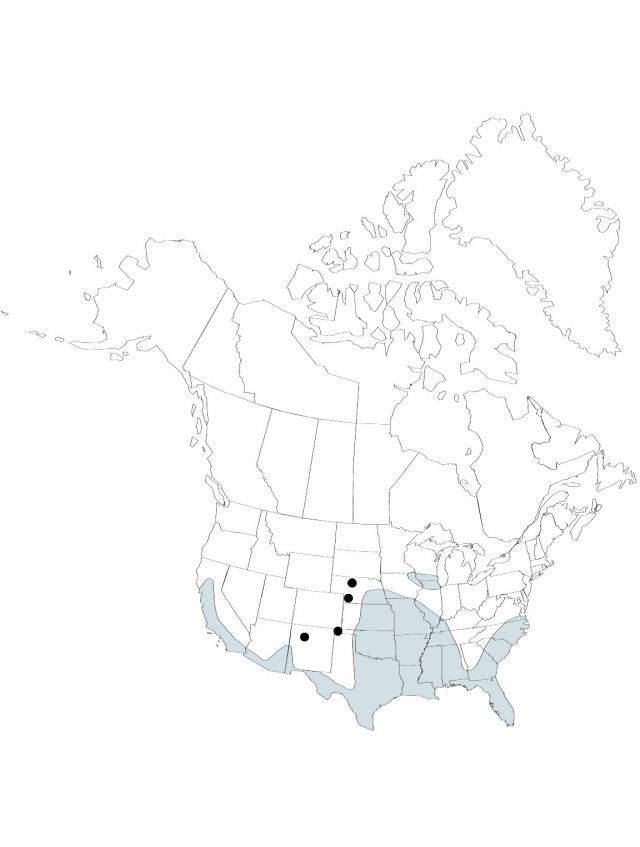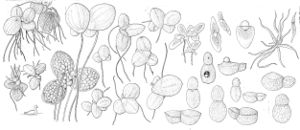Lemna aequinoctialis
Bol. Ann. Cons. Ultramar. (Portugal) 55: 578. 1859.
Roots to 3 cm; tip usually sharp pointed; sheath winged at base (wing 1–2.5 times as long as wide). Stipes small, white, often decaying. Fronds floating, 1 or 2–few, coherent in groups, ovatelanceolate, flat, 1–6 mm, 1–3 times as long as wide, margins entire; veins 3, greatest distance between lateral-veins near or proximal to middle; 1 often very distinct papilla near apex on upper surface and 1 above node; anthocyanin absent, no reddish color; largest air spaces much shorter than 0.3 mm; distinct turions absent. Flowers: ovaries 1-ovulate, utricular scale open on 1 side. Fruits 0.5–0.8 mm, not winged. Seeds with 8–26 distinct ribs, falling out of fruit wall after ripening. 2n = 40, 42, 50, 60, 80, 84.
Phenology: Flowering (frequent) spring–fall.
Habitat: Mesotrophic to eutrophic, quiet waters in warm-temperate to tropical regions
Elevation: 0–1300 mm
Distribution

Ala., Ariz., Ark., Calif., Fla., Ga., Ill., Ind., Iowa, Kans., Ky., La., Miss., Mo., Nebr., N.Mex., N.C., Okla., S.C., Tenn., Tex., Va., Wis., West Indies, Central America, South America, s Eurasia, Africa, Atlantic Islands, Indian Ocean Islands, Pacific Islands, Australia
Discussion
Some authors did not distinguish between Lemna aequinoctialis and L. perpusilla and used the latter name for both species.
Selected References
None.
